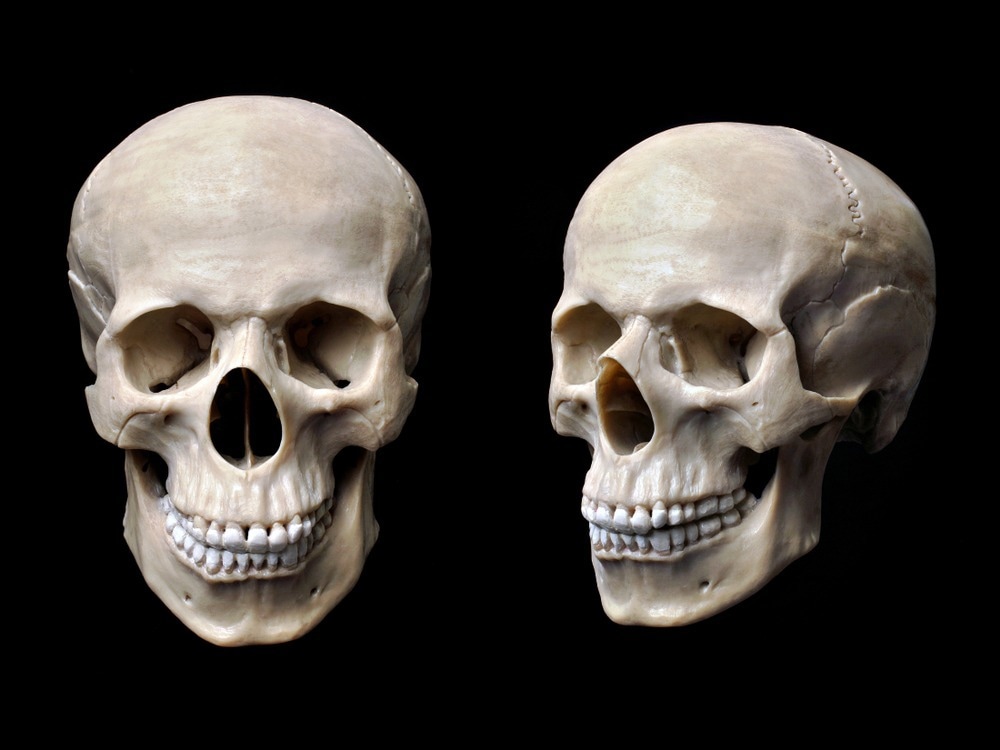A collaborative research team from the University of Pittsburgh and KU Leuven has identified a set of genes that influence the shape of the human head. Their study, published in Nature Communications, offers insights into the diversity of human head shapes and could inform our understanding of skull-related conditions such as craniosynostosis.

Image Credit: Croisy/Shutterstock.com
Focusing on the cranial vault, the upper part of the head protecting the brain, the researchers analyzed various head shape measurements. They pinpointed 30 genomic regions linked to head shape, with 29 being newly identified.
Among the team, Weinberg, who is also the Co-Director of the Center for Craniofacial and Dental Genetics at the School of Dental Medicine, contributed significantly to this research.
The study holds potential implications for paleoanthropology, suggesting ways to explore human evolutionary history. Using magnetic resonance (MR) scans from over 6,000 adolescents, the team created 3D models of the cranial vault.
Anthropologists have speculated and debated the genetics of cranial vault shape since the early 20th century."
Seth Weinberg, Study Co-Senior Author and Professor, Oral and Craniofacial Sciences, University of Pittsburgh
They meticulously divided these models into smaller anatomical sections to quantify and analyze their shapes. This analysis, involving over 10 million genetic variants, revealed significant associations with vault shape.
Weinberg added, “We knew from certain rare human conditions and animal experiments that genes play an important role in vault size and shape, but very little was known about the genetic basis for typical features we see in the general population, such as what makes someone’s head long and narrow versus short and wide. This study reveals some of the key genes driving variation in this part of the human body.”
Previous genetic studies of the cranial vault involved a small number of relatively simple measures. While such measures are often easy to obtain, they may fail to capture features that are biologically relevant."
Seth Weinberg, Study Co-Senior Author and Professor, Oral and Craniofacial Sciences, University of Pittsburgh
Weinberg added, “Our analysis used an innovative approach capable of describing 3D vault shape in much more comprehensive and nuanced ways. This approach increased our ability to find genetic associations.”
Many of these associations were found near genes critical for early head and facial development and bone growth regulation. For example, variations near the RUNX2 gene, essential for skull development, were associated with different aspects of vault shape. While some genes like RUNX2 showed widespread effects, others had localized influences on specific head areas.
Further, a comparative analysis across individuals of European, African, and Indigenous American descent revealed consistent genetic associations in head shape across these groups. Although the study focused on healthy individuals, Weinberg believes the findings could enhance our understanding of craniosynostosis, a condition marked by the premature fusion of skull bones.
Without timely neurosurgical intervention, craniosynostosis can lead to permanent disfigurement, brain damage, vision issues, and even death in severe cases. Intriguingly, the team found that variations near three genes – BMP2, BBS9, and ZIC2, all linked to vault shape – were also associated with craniosynostosis, suggesting their potential role in the disease's development.
This kind of study is possible due to the availability of publicly funded resources. The original study that generated these MR scans is focused on understanding brain development and behavior. By creatively leveraging these resources, we have managed to advance discovery beyond that original scope."
Seth Weinberg, Study Co-Senior Author and Professor, Oral and Craniofacial Sciences, University of Pittsburgh
Source:
Journal reference:
Goovaerts, S., et al. (2023) Joint multi-ancestry and admixed GWAS reveals the complex genetics behind human cranial vault shape. Nature Communications. doi.org/10.1038/s41467-023-43237-8.